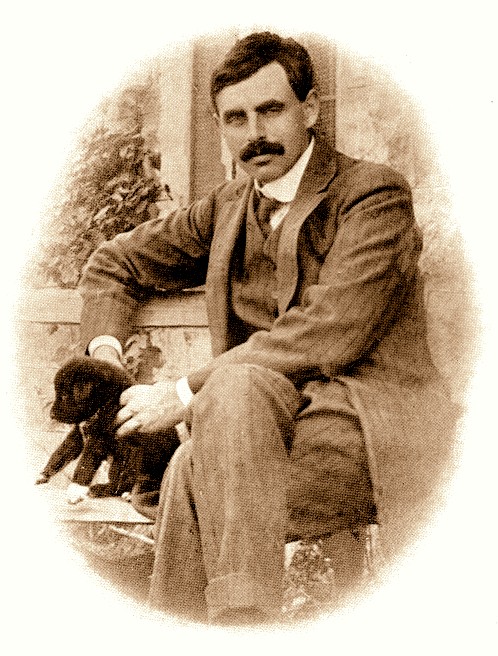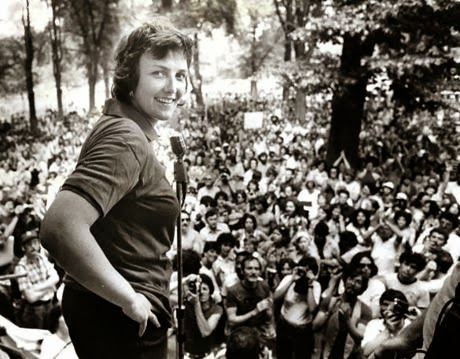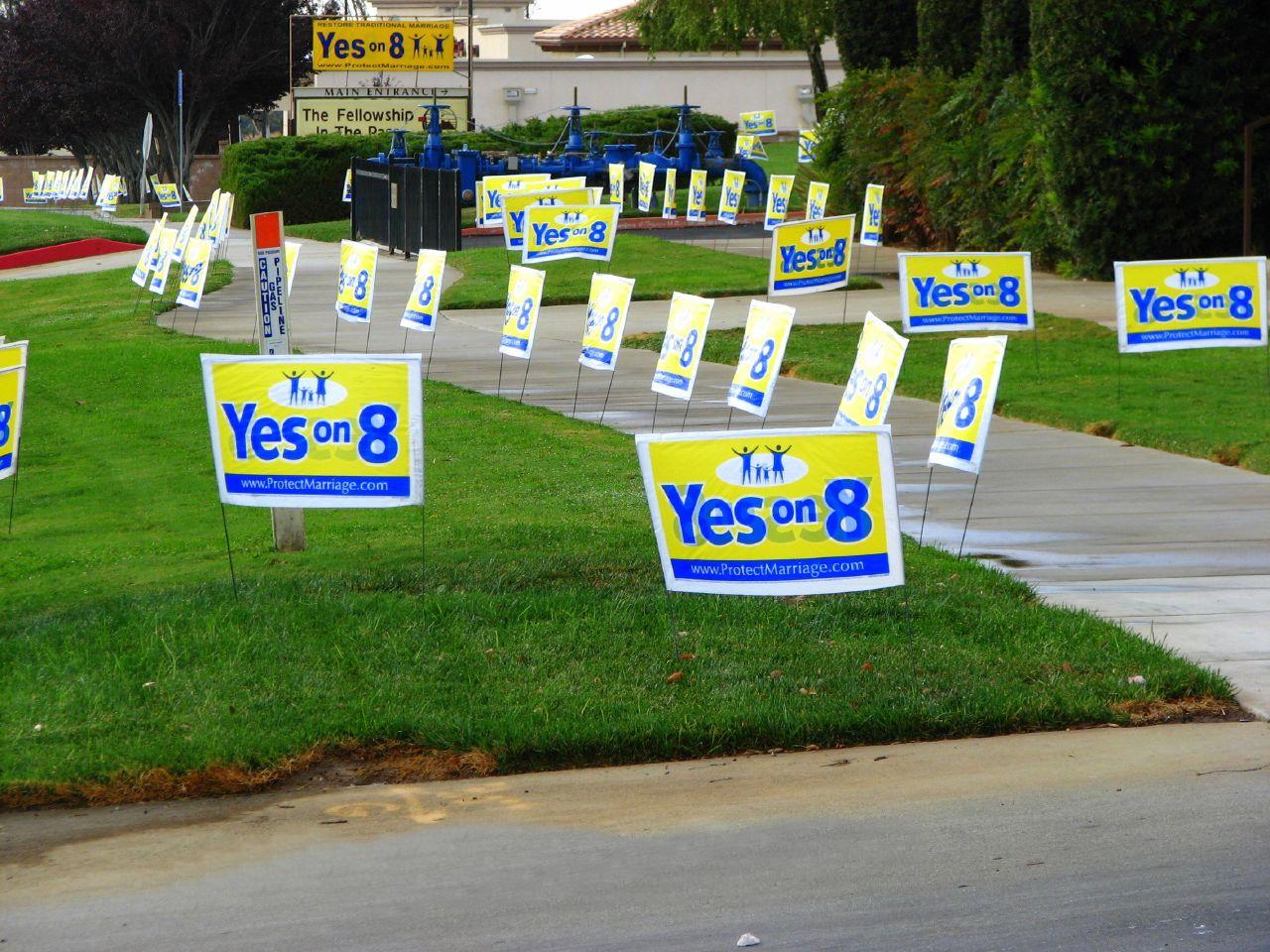|
Gay Wisdom for Daily Living brought to you by White Crane Institute ͏ ͏ ͏ ͏ ͏ ͏ ͏ ͏ ͏ ͏ ͏ ͏ ͏ ͏ ͏ ͏ ͏ ͏ ͏ ͏ ͏ ͏ ͏ ͏ ͏ ͏ ͏ ͏ ͏ ͏ ͏ ͏ ͏ ͏ ͏ ͏ ͏ ͏ ͏ ͏ ͏ ͏ ͏ ͏ ͏ ͏ ͏ ͏ ͏ ͏ ͏ ͏ ͏ ͏ ͏ ͏ ͏ ͏ ͏ ͏ ͏ ͏ ͏ ͏ ͏ ͏ ͏ ͏ ͏ ͏ ͏ ͏ ͏ ͏ ͏ ͏ ͏ ͏ ͏ ͏ ͏ ͏ ͏ ͏ ͏ ͏ ͏ ͏ ͏ ͏ ͏ ͏ ͏ ͏ ͏ ͏ ͏ ͏ ͏ ͏ ͏ ͏ ͏ ͏ ͏ ͏ ͏ ͏ ͏ ͏ ͏ ͏ ͏ ͏ ͏ ͏ ͏ ͏ ͏ ͏ ͏ ͏ ͏ ͏ ͏ ͏ ͏ ͏ ͏ ͏ ͏ ͏ ͏
|
|
||||
| This Day in Gay History | ||||
November 05Born 1884 - JAMES ELROY FLECKER, English poet, born (d: 1915); English poet, novelist and playwright. Born in London, and educated at Dean Close School, Cheltenham, where his father was headmaster, and Uppingham School, he studied at Trinity College, and Caius College, Cambridge. While at Oxford he was greatly influenced by the last flowering of the Aesthetic movement there, under John Addington Symonds. Alas, publicity is a funny thing. Flecker was a contemporary of Rupert Brooke. Both died young during WWI. Brooke, because of his jingoistic attitude towards war (useful to the government) and his good looks, became an instant legend. Flecker, who lacked both utility and looks, did not. Flecker, widely thought to be the superior poet, is known to few readers. His Collected Poems (1916) were published the year after he died at age 30. His poetry shares one trait in common with Brooke’s: the sexuality is ambiguous. There is no question, however, that Flecker was Gay. His lover was the classicist J.D. Beazley, one of the world’s great authorities on Greek vases. His most widely known poem is "To a poet a thousand years hence". The most enduring testimony to his work is perhaps an excerpt from "The Golden Journey to Samarkand" inscribed on the clock tower of the barracks of the British Army's 22nd Special Air Service regiment in Hereford. Noteworthy 1605 - GUY FAWKES DAY, marking the anniversary of the Gunpowder Plot, a conspiracy to blow up the English Parliament and King James I, the day set for the king to open Parliament. The anniversary was named after Guy Fawkes, the most famous of the conspirators. It was intended to be the beginning of a great uprising of English Catholics, who were distressed by the increased severity of penal laws against the practice of their religion. The conspirators, who began plotting early in 1604, expanded their number to a point where secrecy was impossible. The group included Robert Catesby, John Wright, and Thomas Winter, the originators, Christopher Wright, Robert Winter, Robert Keyes, Guy Fawkes, a soldier who had been serving in Flanders, Thomas Percy, John Grant, Sir Everard Digby, Francis Tresham, Ambrose Rookwood, and Thomas Bates. Percy hired a cellar under the House of Lords, in which thirty-six barrels of gunpowder, overlaid with iron bars and firewood, were secretly stored. The conspiracy was brought to light through a mysterious letter received by Lord Monteagle, a brother-in-law of Tresham, on October 26, urging him not to attend Parliament on the opening day. The 1st earl of Salisbury and others, to whom the plot was made known, took steps leading to the discovery of the materials and the arrest of Fawkes as he entered the cellar. Other conspirators, overtaken in flight or seized afterward, were killed outright, imprisoned, or executed. Among those executed was Henry Garnett, the superior of the English Jesuits, who had known of the conspiracy. While the plot was the work of a small number of men, it provoked hostility against all English Catholics and led to an increase in the harshness of laws against them. Guy Fawkes Day, November 5, is still celebrated in England with fireworks and bonfires, on which effigies of the conspirator are burned. 2008 - BARACK OBAMA ELECTED PRESIDENT OF THE UNITED STATES; the first African-American man to rise to this high office. Obama is the first African-American to be nominated by a major American political party for president. A graduate of Columbia University and Harvard Law School, where he became the first black person to serve as president of the Harvard Law Review, Obama worked as a community organizer and practiced as a civil rights attorney before serving three terms in the Illinois Senate from 1997 to 2004. He taught constitutional law at the University of Chicago Law School from 1992 to 2004. Following an unsuccessful bid for a seat in the U.S. House of Representatives in 2000, he announced his campaign for the U.S. Senate in January 2003. After a primary victory in March 2004, Obama delivered the keynote address at the Democratic National Convention in July 2004. He was elected to the Senate in November 2004 with 70 percent of the vote. He was elected in a landslide election with more than 338 electoral votes and a majority of over 52%. The Obama administration's support of LGBT Rights was a huge part of the achievement of marriage equality and the end of the armed services Don't Ask, Don't Tell policy. 2008 - The State of California passes PROPOSITION 8, overturning a recent state Supreme Court ruling legalizing same-sex marriage. Same-sex couples who had married or planned to marry, the cities of San Francisco and Los Angeles, and the county of Santa Clara joined together the following day in a series of three lawsuits against the proposition. The campaigns for and against Proposition 8 raised $39.9 million and $43.3 million, respectively, becoming the highest-funded campaign on any state ballot and surpassing every campaign in the country in spending except the presidential contest. After the elections, demonstrations and protests occurred across the state and nation. Same-sex couples and government entities filed numerous lawsuits with the California Supreme Court challenging the proposition's validity and effect on previously administered same-sex marriages. In the Strauss v. Horton case, the court upheld Proposition 8, but allowed existing same-sex marriages to stand (under the Grandfather clause principle). U.S. district court Judge Vaughn R. Walker overturned Proposition 8 on August 4, 2010 in the case Perry v. Schwarzenegger, ruling that it violated both the Due Process and Equal Protection clauses of the U.S. Constitution. Judge Walker issued an injunction against enforcing Proposition 8 and a stay to determine suspension of his ruling pending appeal. The Ninth Circuit Court Of Appeals continued the stay, keeping Judge Walker's ruling on hold pending appeal The quest for marriage equality has created some unlikely allies in attorneys Theodore Olson, a conservative, and David Boies, a liberal. Long well-known within the field of law, the two became nationally famous as the opposing counsels in Bush v. Gore, the Supreme Court case that halted the Florida recount, and resolved the 2000 Presidential election in favor of George W. Bush. The two lawyers, both veterans of multiple Supreme Court cases, mounted a well-financed legal challenge to Proposition 8, California's 2008 ballot initiative that put an end to same-sex marriage in that state. On June 26, 2013, the Supreme Court of the United States issued its decision on the appeal in the case Hollingsworth v. Perry, ruling that proponents of initiatives such as Proposition 8 did not possess legal standing in their own right to defend the resulting law in federal court, either to the Supreme Court or (previously) to the Ninth Circuit Court of Appeals. Therefore the Supreme Court both dismissed the appeal and directed the Ninth Circuit to vacate (withdraw) its decision, which had upheld the district court ruling. The decision left the district court's 2010 ruling intact.[ On June 28, 2013, the Ninth Circuit lifted its stay of the district court's ruling, enabling Governor Jerry Brown to order same-sex marriages to resume. Along with the overturn by the Supreme Court of the Defense of Marriage Act, the obstacles to marriage equality quickly began to crumble. Marriage is now available in fourteen states and Washington D.C. Today's Gay Wisdom 2017 - Equinox/Return An excerpt from Mark Thompson’s Gay Spirit: Myth & Meaning What Edward Carpenter, Gerald Heard and Harry Hay recognized was the “new city of Friends” described by Walt Whitman over a hundred years ago—a sustaining place where “robust love” might thrive, a deep source of empowerment. It has been a dream asserted by a few and glimpsed by others at crucial points in our development. The early 1950s and 1970s were times when our movement howled at the moon, briefly acknowledging that this dream could be a reality. That this rude awakening represented something instinctual, wildly alive, posed problems for our leaders. Here was nature, woolly and cloven-hoofed, taking on unexpected form. Here were luminous faces peering out on the edges of accepted reality. How strangely familiar, too, for others to suppress what they do not comprehend, to fear what they’ve been taught to distrust. Power, status, the hierarchy of who’s on top is the real currency of American culture, and so many of our leaders have been seduced by it all. These are the tactics of assimilation and they smell of panic. Thinking we have gained so much, we have been led to settle for less than we can be. There is a tyranny implicit in any label, and certainly the label of Gay has now been revealed as much for its limitations as for its liberations. Why not consider difference, whatever its reason, in terms of function? The concept of a faerie shaman is just one idea that indicates a purposeful role, beyond that of just political or sexual identity. In times past and in many cultures, we often assumed the tasks of the shamans—wise and creative ones—and were duly honored as such. If we can but take gay beyond society’s definition—which we have internalized—and see ourselves as part of this function, our secret will be out. I failed in my father’s eyes, and he in mind, as, I suppose, it had been fated. More to the point, few gay men ever seem to find complete acceptance from their fathers. (And even tolerance, however honorable, cannot account for true knowing.) Gay men have even less hope of being accepted by the greater father, the world of our daily existence, which, despite tolerant inroads, remains disapproving to its core. But neither can an opposite reality—that is, the matriarchy—hold any more honest place for us. Perhaps at one time, and according to the current feminist myth, the dominant Great Mother societies of agrarian, pre-Judeo-Christian times accepted gay men as welcomed sons. But I suspect, more likely, as subservient sons, in contrast to the outlawed sons of our contemporary age. So gay men remain suspended in a horrible dilemma. Both the matriarchy and the patriarchy have, in effect, played themselves out; and the future, symbolized through an historic union of the two—has yet to fully emerge. Gay male consciousness remains stymied, unable to come of age. This is why so much of recent gay-identified culture appears to lack deeper meaning; however fresh and guileless its messages, empowered as it is by ritual dance and sex and defiance against corrupt authority. At what point do gay boys stop finding favor in their father’s eyes? What stories are withheld, what rites of manhood lost in that uncomprehending gaze? Now, as gay men, we must begin by finding forgiveness in each other’s eyes, seek favor in stories of our own telling — our own fairy tales, the instructional fables we need to assume a mature and ever evolving gay adulthood. And for this we need to reinvest in wonder. By learning more fully to evoke and to balance the powers of (what were once known as) the Earth Mother and Father Sky, we can set into motion our own whiling evolution as gay men beyond definition. We will no longer suffer from the constraints of living on a fraction of a life. We will evidence harmony as men who see clearly within and thus act cleanly without. We can learn to revel in our perspective, as much as our preference, and we don’t need a name. Our freedom is our responsibility. We simply need to do our work. But first we must take the dark fantasies of our suppressed spirits out of their closets into the powerful light of reality. We can have a vision, and, thus, a culture to affirm, until one day perhaps our fathers will knowingly proclaim: “I have one of those.” Gay Spirit: Myth & Meaning is now available at www.gaywisdom.org www.whitecranebooks.org | ||||
|
|8|O|8|O|8|O|8|O|8|O|8|O|8|O|8| Gay Wisdom for Daily Living from White Crane Institute "With the increasing commodification of gay news, views, and culture by powerful corporate interests, having a strong independent voice in our community is all the more important. White Crane is one of the last brave standouts in this bland new world... a triumph over the looming mediocrity of the mainstream Gay world." - Mark Thompson Exploring Gay Wisdom & Culture since 1989! |8|O|8|O|8|O|8|O|8|O|8|O|8|O|8| | ||||
|
|||||
|








